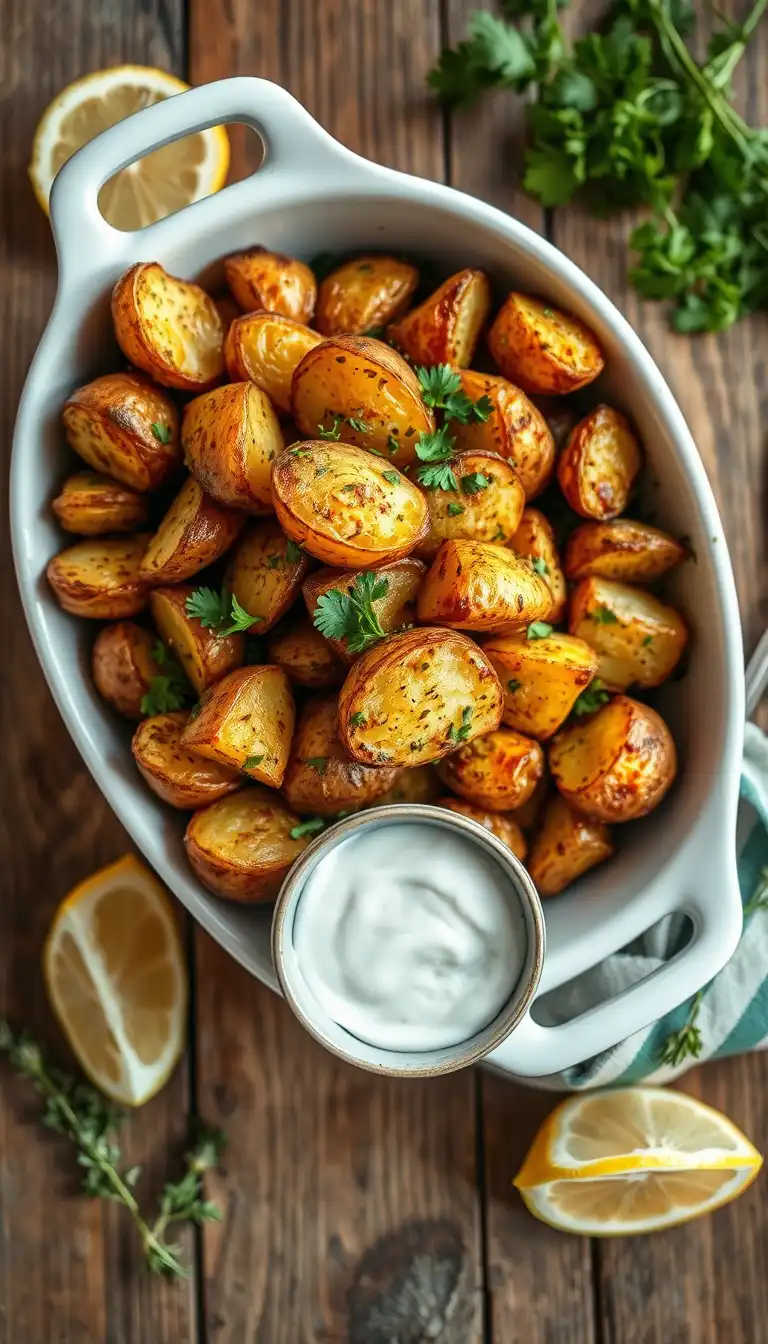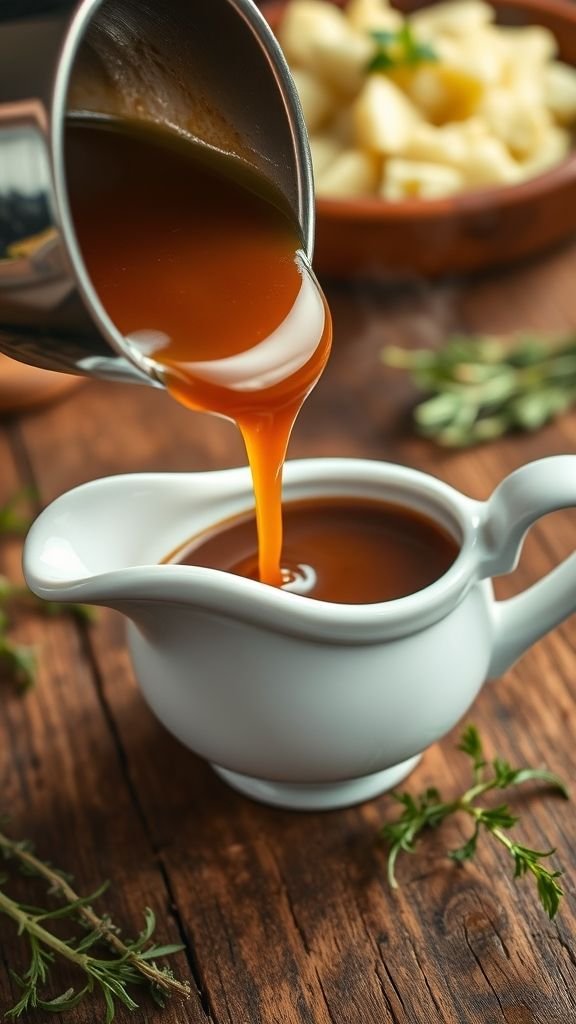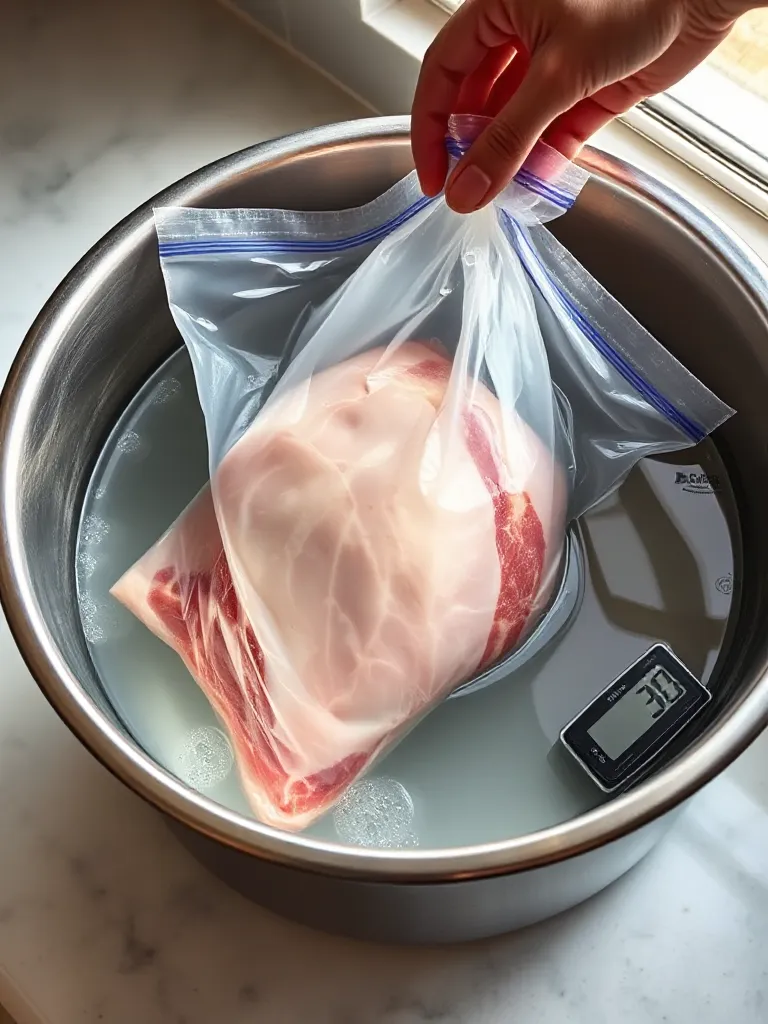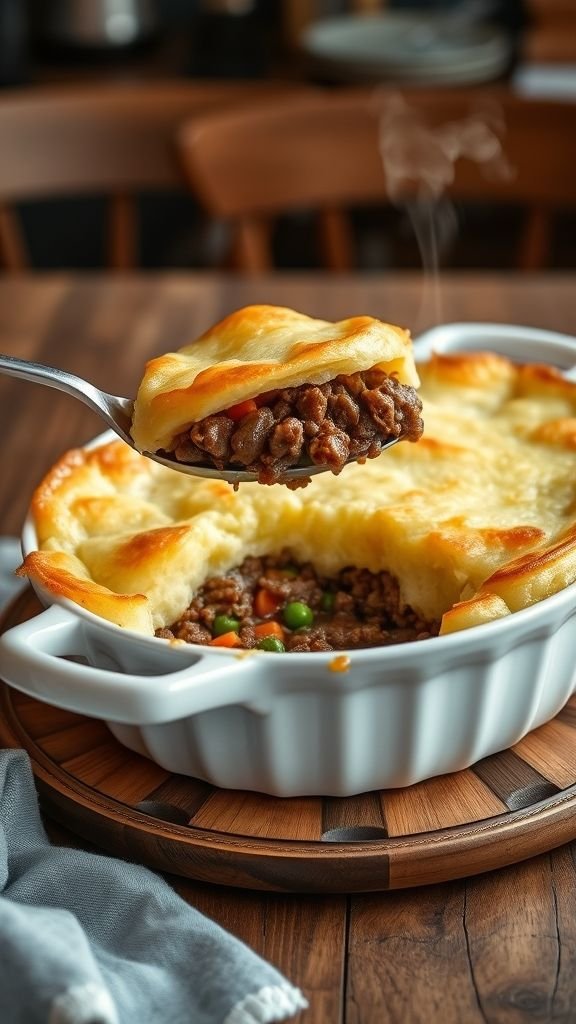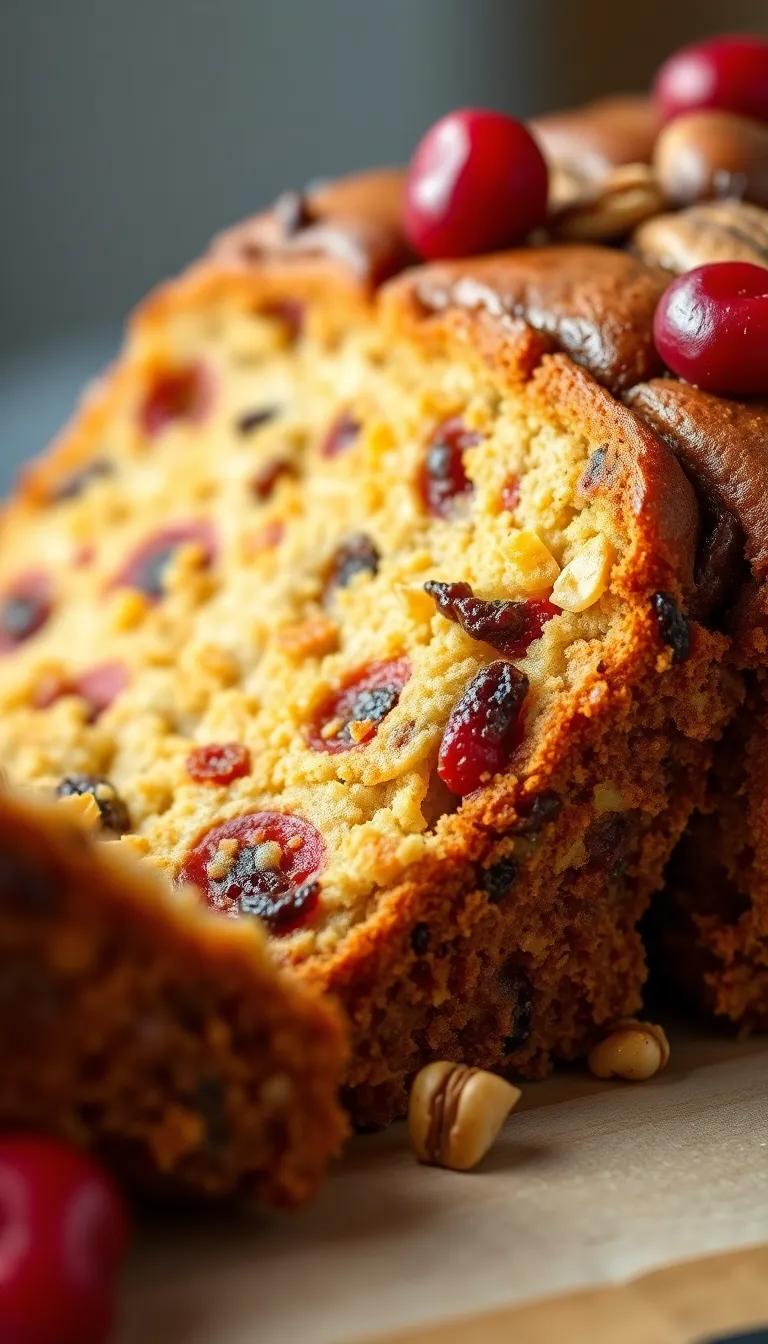When it comes to cooking mouthwatering ribs, most people think about marinades, dry rubs, or barbecue sauce. But there’s a secret step many pitmasters swear by: soaking ribs in vinegar before cooking. This simple technique can transform your ribs from tough and chewy to juicy, tender, and full of flavor.
In this guide, we’ll dive deep into why you should soak ribs in vinegar, how long to do it, what type of vinegar works best, and tips to get perfect results every time. Whether you’re smoking, grilling, or baking, you’ll learn how vinegar can be your secret weapon for competition-worthy ribs.
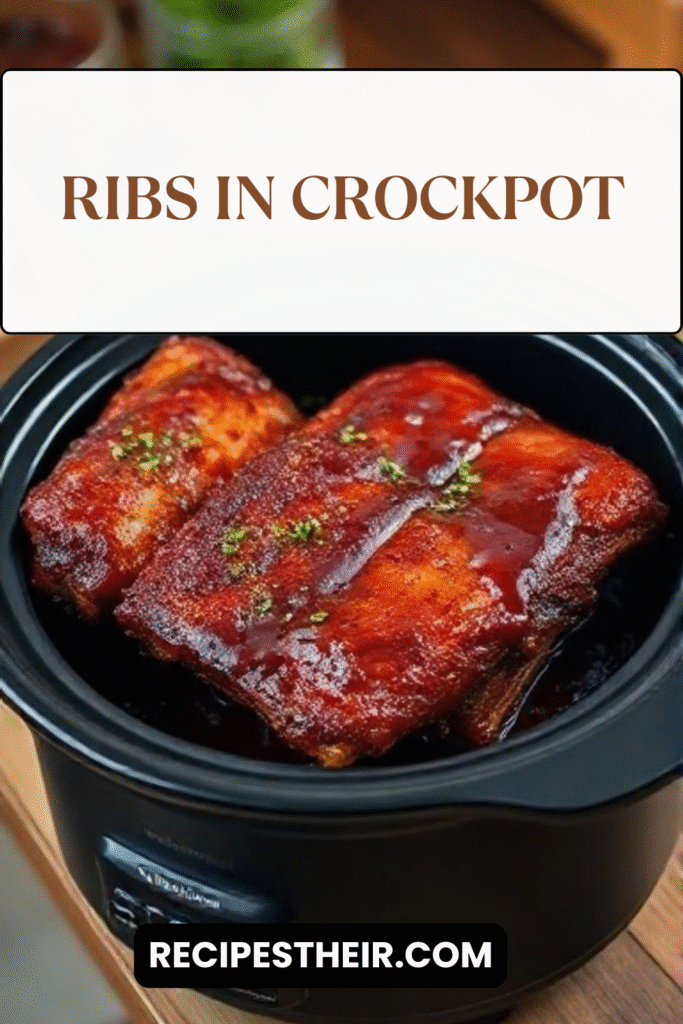
Why Soak Ribs in Vinegar?
Soaking ribs in vinegar isn’t just an old-school barbecue trick — there’s actual science behind it. Vinegar is acidic, which helps break down tough connective tissues in pork ribs. This results in meat that is:
- More Tender: The acidity helps loosen muscle fibers, making the ribs soft and juicy after cooking.
- Flavor-Ready: Soaking can remove some of the blood and impurities from the meat, leaving a cleaner taste.
- Better Bark Formation: When combined with a dry rub, vinegar helps create a nice crust or “bark” during smoking.
- Reduced Gamey Flavor: If you find pork ribs to have a strong or unpleasant smell, vinegar can neutralize that.
So, if you want ribs that practically fall off the bone, soaking them in vinegar is worth trying.
Choosing the Right Vinegar for Ribs
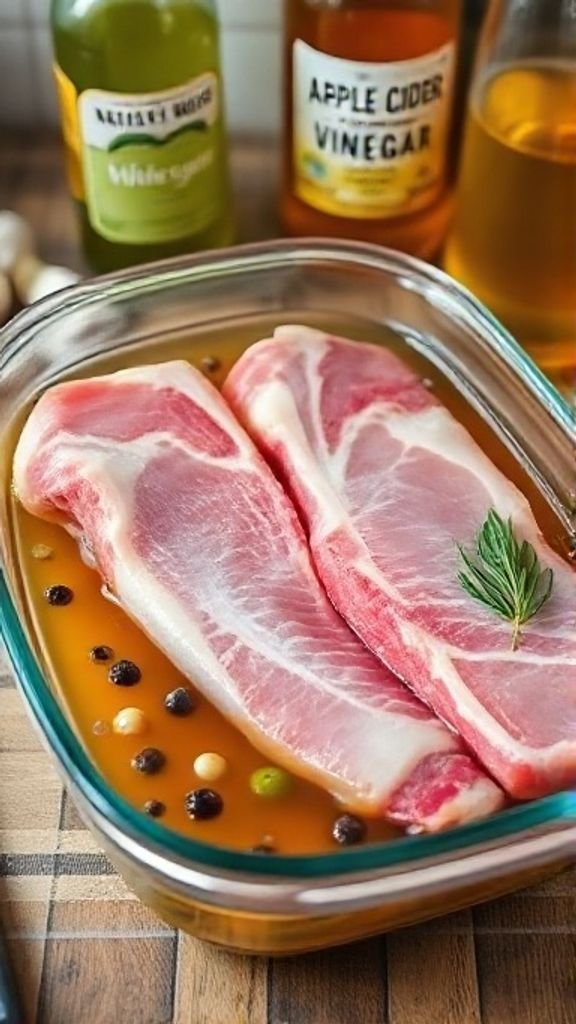
Not all vinegars are created equal. The type of vinegar you choose will slightly affect the final flavor of your ribs. Here are the most popular choices:
- Apple Cider Vinegar: The most common choice for barbecue. It has a slightly sweet, fruity flavor that complements pork perfectly.
- White Distilled Vinegar: Strong and clean, great if you don’t want any extra flavor — just pure tenderizing power.
- Red Wine Vinegar: Adds a bolder, tangy kick to your ribs — perfect for those who love deep, complex flavors.
- Rice Vinegar: A milder option that gives a subtle sweetness, ideal for Asian-inspired rib recipes.
Most pitmasters prefer apple cider vinegar because it pairs naturally with the sweetness of barbecue sauce and smoke.
How Long Should You Soak Ribs in Vinegar?
The most common mistake people make is soaking ribs for too long. Vinegar is powerful — leave your ribs in it overnight, and you might end up with mushy meat.
Here’s a good rule of thumb:
- Minimum Time: 30 minutes
- Ideal Time: 1–2 hours
- Maximum Time: 3 hours (for very thick, meaty ribs)
After soaking, always rinse the ribs under cold water and pat them dry with paper towels. This removes excess acidity and ensures the vinegar doesn’t overpower the flavor of your rub or sauce.
Step-by-Step: How to Soak Ribs in Vinegar
Here’s a simple process you can follow for perfect results every time.
Ingredients:
- 2 racks of pork ribs (baby back or spare ribs)
- 2–3 cups apple cider vinegar (enough to cover ribs)
- Water (optional, to dilute)
Instructions:
- Prepare the Ribs: Remove the membrane from the back of the ribs for better flavor penetration.
- Create the Soak: In a large dish or container, pour apple cider vinegar over the ribs. You can dilute it with equal parts water if you prefer a milder soak.
- Soak: Cover and refrigerate for 1–2 hours.
- Rinse & Dry: Remove the ribs, rinse them under cold water, and pat completely dry.
- Season: Apply your favorite dry rub or marinade.
- Cook: Smoke, grill, or bake the ribs as usual.
Should You Dilute the Vinegar?
If you’re new to soaking ribs in vinegar, you may want to dilute it 50/50 with water. This prevents the acidity from overpowering the flavor and keeps the ribs from getting too soft. Once you’re comfortable with the process, you can experiment with soaking in full-strength vinegar for a bolder taste.
Flavor Boost: Using Vinegar Beyond the Soak
Soaking isn’t the only way to use vinegar for ribs. Many barbecue enthusiasts also:
- Spritz During Smoking: Fill a spray bottle with apple cider vinegar (sometimes mixed with apple juice) and spritz ribs every 30–45 minutes during smoking to keep them moist.
- Add to Mop Sauce: Mix vinegar with melted butter, spices, and a little brown sugar for a flavorful mop sauce that keeps ribs juicy.
- Include in Marinades: Blend vinegar with garlic, onion, and spices for an overnight marinade.
These techniques help enhance flavor and maintain moisture during the long cooking process.
Common Mistakes When Soaking Ribs in Vinegar
To get the best results, avoid these common errors:
- Soaking Too Long: Leads to mushy meat. Stick to 1–2 hours.
- Not Rinsing After Soaking: This can leave a harsh, overly acidic taste.
- Skipping the Dry Rub: Vinegar tenderizes, but it doesn’t season. A flavorful rub is still essential.
- Using Metal Containers: Always use glass, ceramic, or food-grade plastic to avoid a reaction with vinegar.
Pairing Your Vinegar-Soaked Ribs with Sides
Ribs this good deserve great sides. Here are some ideas:
- Cornbread or Biscuits: Slightly sweet, fluffy bread is perfect for soaking up barbecue sauce.
- Coleslaw: Its crunch and tang balance out the richness of the ribs.
- Grilled Corn on the Cob: A smoky side that complements the flavor of the ribs.
- Baked Beans: Classic, hearty, and slightly sweet.
- Potato Salad: Creamy and cool, it offsets the heat if you’re using a spicy rub.
Health Benefits of Using Vinegar
Believe it or not, vinegar isn’t just for flavor — it offers some health perks too:
- May Help Digestion: The acidity can stimulate digestive enzymes.
- Reduces Sodium Needs: Its tangy flavor lets you cut down on added salt.
- Antibacterial Properties: Helps reduce surface bacteria on meat before cooking.
While you won’t get huge health benefits from soaking alone, it’s still a smart choice for both taste and food safety.
Final Thoughts on Soaking Ribs in Vinegar
Soaking ribs in vinegar is one of those little steps that can make a huge difference in the quality of your barbecue. It tenderizes, enhances flavor, and helps create restaurant-quality results at home.
Whether you prefer apple cider vinegar for a touch of sweetness or distilled vinegar for a neutral taste, the key is soaking just long enough to tenderize without overdoing it. Rinse, dry, season well, and cook low and slow — you’ll end up with ribs that are juicy, flavorful, and unforgettable.
So next time you fire up the smoker or oven, give soaking ribs in vinegar a try. Your friends and family will thank you when they bite into those perfectly tender ribs.

